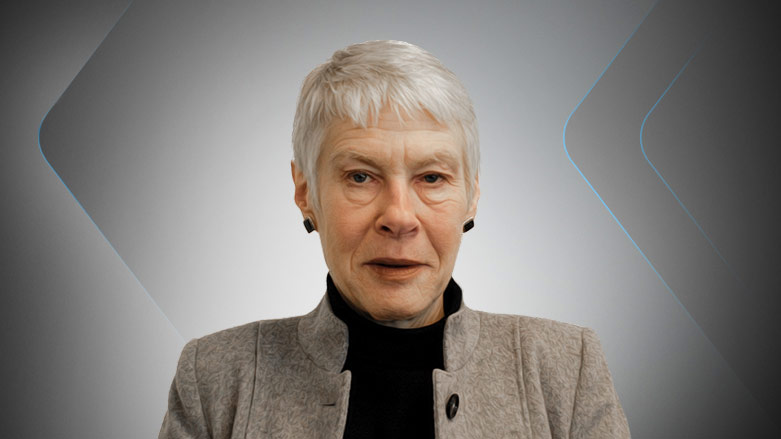What did French leaders learn from President Barzani?

Last week, Massoud Barzani, President of the Kurdistan Regional Government (KRG), visited Paris. The city welcomed him warmly—like a head of state and an old friend.
France, especially the French Socialists, have long maintained special ties with the Kurds. That relationship dates back to the days of Francois Mitterrand, France’s longest-serving president (1981-1995), and his wife, Danielle, a steadfast friend of the Kurds.
Almost certainly, however, there was an additional factor behind the French reception of Barzani. Among the 60-some leaders in the US-led anti-Islamic State (IS) coalition, Massoud Barzani is by far and away the most knowledgeable on the most important question of the day: the coming battle to liberate Mosul.
No other leader understands the intricacies of the complex mix of peoples living in Mosul and Nineveh province as Barzani does. It is his backyard, after all. Moreover, he has been there for many years. Unlike Baghdad’s politicians, including Prime Minister Haidar al-Abadi, Barzani did not spend decades in exile in the period before 2003.
In addition, Barzani was the intelligence officer for his legendary father, Mullah Mustafa. He is precise with detail and careful in his conclusions (many years ago, I interviewed him at some length.) Few political leaders can match his ability to deal with issues at both the general, strategic level and at the nitty-gritty, tactical level. Typically, they are good at the former, but not the latter.
Finally, Barzani is the only coalition leader with relevant, meaningful military experience. When Barzani visits the front lines, he is returning to familiar territory. After all, he was a Peshmerga commander, sometimes fought in pretty difficult circumstances.
Nothing remotely similar can be said about any other coalition leader. Barzani occupies a unique position, bridging two worlds—one of the distant Western powers and the other of the local peoples.
Barzani’s meeting with Francois Hollande was his fourth with the French president in little over two years. Such frequent consultation suggests a warm relationship between the two men.
The most significant of those encounters occurred in September 2014, shortly after the US-led aerial campaign against IS had begun. With the terrorist force camped less than 30 miles away, Hollande flew to Erbil to meet the Kurdish president.
Barzani also met with France’s Defense and Foreign Ministers during his trip to Paris. Presumably, he told them something similar to what he told the French press: military preparations are largely in place to liberate Mosul. One outstanding question, however, is the role of the Shiite militias.
The Shiite militias want to be involved. The heads of those forces, the most powerful of which are backed by Iran, believe they will appear as Iraqi patriots and, thus, gain political advantage from participating in the battle for Mosul.
However, officials from Nineveh Province have rejected the idea. They fear that the militias will engage in acts of sectarian revenge, as they did when they fought IS elsewhere.
However, the biggest unresolved question is the political preparation for Mosul’s liberation. That remains incomplete, even as Barzani repeatedly emphasized its importance. “Without political agreement, there is no battle for Mosul,” he stated unequivocally.
When asked to give a date for the Mosul offensive, Barzani declined to do so, because this question remained open.
However, US President Barack Obama would like to defeat IS in Iraq, before he leaves office in January. Does he understand the importance of Barzani’s point? It is part of standard counter-insurgency doctrine. To hold territory against an insurgent force and ensure that it does not return, one must set up a political authority that is acceptable to the local population and which will keep the terrorists out.
Otherwise, one keeps fighting the same war, over and over.
Barzani also pointed to the existence of outstanding strategic issues: Iraq and Syria are, in effect, partitioned. It is not possible to return to what existed before the conflicts.
CIA Director John Brennan has said much the same. However, US policymakers do not seem to have adjusted to this new reality. When asked about reports that Prime Minister Abadi did not object to a referendum on Kurdish independence, a State Department spokesman merely reaffirmed the US commitment to Iraq’s territorial integrity.
How can the US remain committed to something that no longer exists?
In Paris, Barzani received the audience that his experience and insights would merit. Although Washington is not unfriendly, it does not seem quite as appreciative. Vice-President Joe Biden is in charge of Iraq policy for the White House. He was recently in Ankara at the same time as President Barzani. The two men could have met, but did not.
The US would seem the worse off for that. There are, clearly, crucial issues that still require decision and resolution.
Laurie Mylroie, Ph.D., recently assumed the position of Kurdistan24's State Department correspondent. She previously served as a cultural advisor to the US military in Afghanistan.
The views expressed in this article are those of the author and do not necessarily reflect the position of Kurdistan24.
Editing by Delovan Barwari
